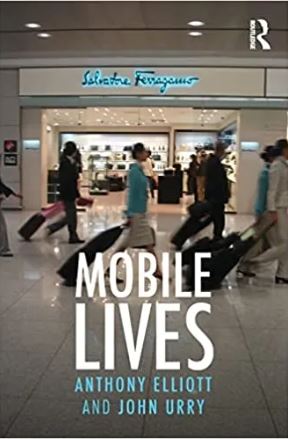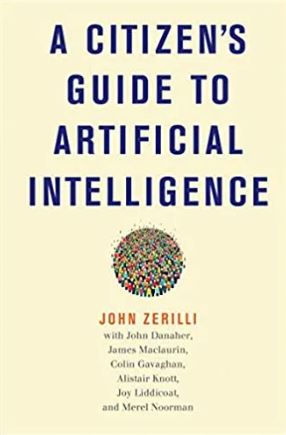AI x Society
Four Conversations is an annual signature programme by the National Library where thought leaders share new possibilities for the future, while inspiring lifelong learning and the creation of new knowledge.
This resource guide has been produced to complement the conversation on AI x Society.
The speakers for this session are:
 Anthony Elliot
Anthony ElliotAuthor and Super-Global Professor of Sociology (Visiting)
Keio University, Japan
 Lim Sun Sun
Lim Sun SunHead of Humanities, Arts and Social Sciences
Singapore University of Technology and Design
 Moderated by:
Moderated by:Irene Tham
Tech Editor
The Straits Times
In a Pew Research survey in 2018, 979 technology-field experts were asked this question: By 2030, as artificial intelligence (AI) continues to spread and become adopted, will people be better off than they are today? 63% were hopeful that individuals would be better off.1 This may be a majority, but some disagreement implies hesitation.
Some believe that AI will bring about technological developments thereby saving time, money, resources amongst others factors, leading to societal advancements and major improvements in everyone’s lives. AI is already being used to discover and develop new drugs in medicine, report crimes such as sexual harassment, exploitation and human trafficking, and optimising the flow and generation of green energy.2
Others however fear that these advanced AIs could be misused or even harm people, intentionally or otherwise. Some fear the job losses which AI and automation may lead to, and others fear that AI could be used as a tool by bad actors, the military, or governments to control the masses. A major fear is also the potential for a super-intelligent AI that takes over humanity as it becomes too powerful to control.3
Some of these fears may seem far-fetched, but they mainly result from the lack of clarity on where AI development is heading towards, and how soon these changes will happen. The sooner we grapple with the potential impact of AI on human society, the better we can picture the future of AI research (and what we should avoid). AI may still have some way to go, but these crucial questions will serve as moral and ethical signposts to guide AI development.
This guide provides supplementary resources for those who are keen to further explore this topic. You can also visit to search for more resources. If you would like to view other resource guides created by our librarians, please visit Reference@NLB.
This resource guide was prepared in September 2022 by Kevin Seet, a Librarian at the National Library, Singapore.
Books
| Title | Description |
|---|---|
 |
Mobile Lives Elliott, Anthony, & Urry, John. (2020). Mobile Lives. London ; New York, NY : Routledge. |
 |
A Citizen’s Guide to Artificial Intelligence Zerilli, John, & Danaher, John. (2021). A Citizen’s Guide to Artificial Intelligence. MIT Press Retrieved from OverDrive. (myLibrary ID is required to access the eBook) |
Website
Global Future Council on Artificial General Intelligence
“Global Future Council on Artificial Intelligence for Humanity”. World Economic Forum, 2022. Retrieved 2021, August 26, from
Journal Article
From Senseless Swarms to Smart Mobs: Tuning Networks for Prosocial Behaviour
Lim, Sun Sun, & Bouffanais, Roland. (2019). From Senseless Swarms to Smart Mobs: Tuning Networks for Prosocial Behaviour. IEEE Technology and Society Magazine, 38(4), 17-19, from
Video
From artificial intelligence to superintelligence: Nick Bostrom on AI & the future of humanity
From artificial intelligence to superintelligence: Nick Bostrom on AI & the future of humanity. Science Time, November 22, 2020, from
All Rights Reserved. National Library Board Singapore 2022.
-
Anderson, Janna, and Lee Rainie. “Artificial Intelligence and the Future of Humans.” Pew Research Center, July 22, 2020. https://www.pewresearch.org/internet/2018/12/10/artificial-intelligence-and-the-future-of-humans/ ↩
-
Sukhadeve, Ashish. “Artificial Intelligence for Good: How AI Is Helping Humanity.” Forbes, April 14, 2022. https://www.forbes.com/sites/forbesbusinesscouncil/2021/02/09/artificial-intelligence-for-good-how-ai-is-helping-humanity/ ↩
-
Schmelzer, Ron. “Should We Be Afraid of Ai?” Forbes, October 31, 2019. https://www.forbes.com/sites/cognitiveworld/2019/10/31/should-we-be-afraid-of-ai/ ↩

